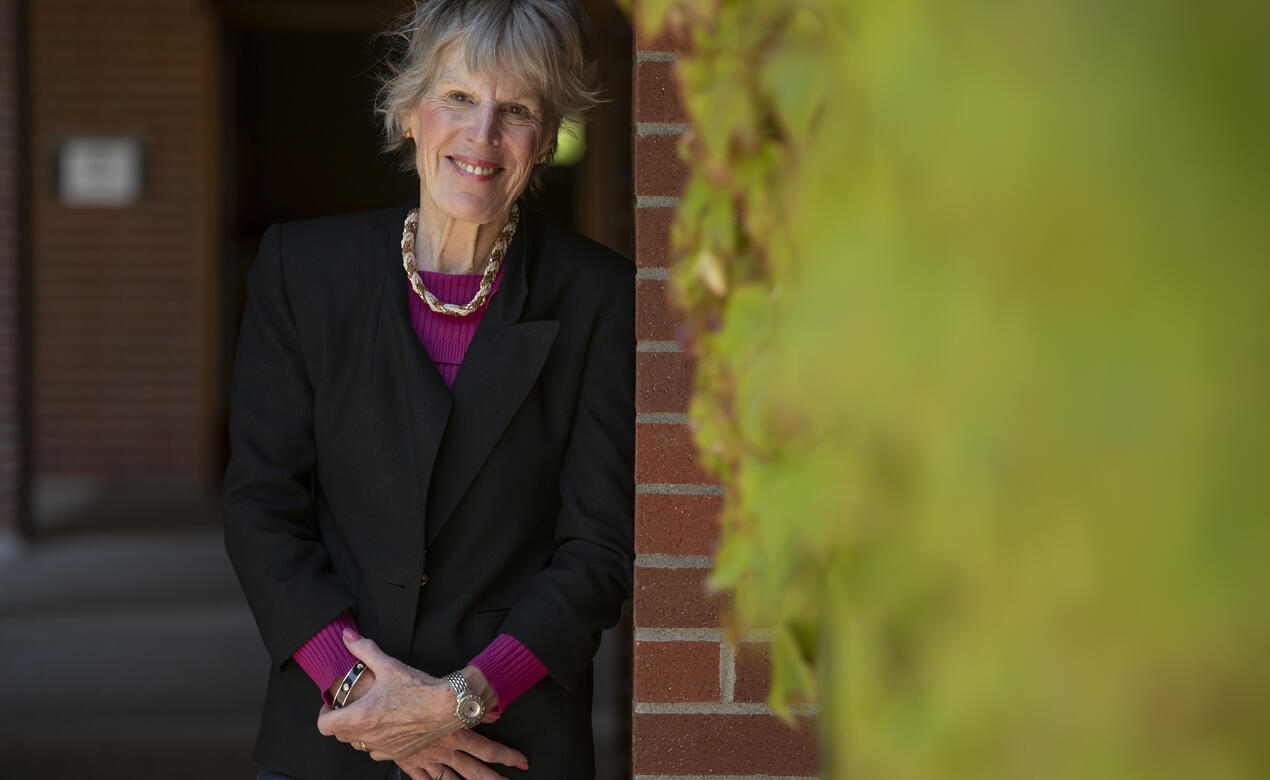
Every year, we are honoured to recognize members of the SMUS community as they retire and take on new adventures. Read the 2021 Retirees series to learn more about their outstanding contributions to the school. In this story, we recognize nurse Allison Weir.
Since the start of the COVID-19 pandemic, more people have become informed and aware of what it means to be a nurse; what the challenges are, what the commitment demands, what incredibly personal costs must be borne. It is a career that requires on one hand medical expertise, and on the other deep seated empathy. Allison Weir, in her 19 years of service to the SMUS community, demonstrated both in what seemed to be an effortless manner.
She says it was “a joy and a privilege” to work with boarding and day students, as well as families. There was a code of ethics and heartfelt empathy that she brought to her career.
Allison was a committed nurse who clearly put students first. Her commitment to the demands of her position were manifested in the confidentiality she offered, the nonjudgmental environment she created and an abiding desire to learn. Through this, she built trust with the students in her care; students who needed someone who could respond to their unique and diverse health needs.
Allison says she has felt privileged to be part of a diverse group of SMUS colleagues, their families, and the many children they serve from local and international communities. Well-trained by years of nursing, intensely honed in the emergency departments of Vancouver hospitals in the late 1970s, even more refined by being a mother to four children (three of whom attended SMUS and her eldest at Glenlyon Norfolk School), Allison learned the importance of listening to her young patients.
Working closely in the SMUS Health Centre with Dr. Iain Forbes, who she describes as “an unassuming hero,” Allison strived to trust her young patients (many whose families were far away, whose language was foreign, whose culture was different) and work with them to diagnose what was wrong and to act quickly and efficiently to seek a remedy.
Allison comes from a medical family: her father was a doctor; her mother was a nurse; one brother is a doctor; the other is a hospital administrator; and her husband is a nephrologist. Steeped in this world, she never hesitated to draw on this lifetime knowledge of the medical network to ensure that her patients had the support they needed right away.
Our school and our students were privileged to have a dedicated nurse who would not stop until their patients received the required intervention. Allison felt utterly privileged to work together with a community of equally dedicated educators, along with local and international families, “to offer a meaningful upbringing to so many wonderful children.”
Allison, along with the doctors and nurses she worked with in the Health Centre, ensured it was a safe place for students where they knew confidentiality was guaranteed, up-to-date medical knowledge ruled, non-judgmental advice was offered, and diagnosis was understood to be critical to health and wellbeing.
“The role of a nurse who serves a boarding school community with students whose families and regular doctors are far away, cannot be underestimated,” she says. Cultural and language differences in a classroom are a challenge, but they can be far more significant and serious when it comes to health and safety.
Allison rose to the challenge of working in a complex international community because, as a mother, she felt strongly that all children deserve the most committed and sensitive care adults can offer to ensure their health and wellbeing. Being a mom and a professionally trained in the high-stakes world of emergency departments made Allison the nurse to whom nothing was too much trouble, no stone could be left unturned, no child's voice could be ignored and no family – no matter how far away – could worry that their child was not receiving the most heartfelt, informed, confidential, and committed response.
Allison has seen over her years of nursing that it is utterly vital that all patients – and especially youth – are heard, whether it is physical issues or psychological ones. Working at SMUS brought her immense fulfilment, she says, where she “loved going to work every day.”
She took immense satisfaction from ensuring every single patient she worked with – from an international student to a teacher – was matched with the exact intervention, assessment, or required specialist. She loved being part of a close-knit community that shared the goal of serving students from home and from around the globe.


